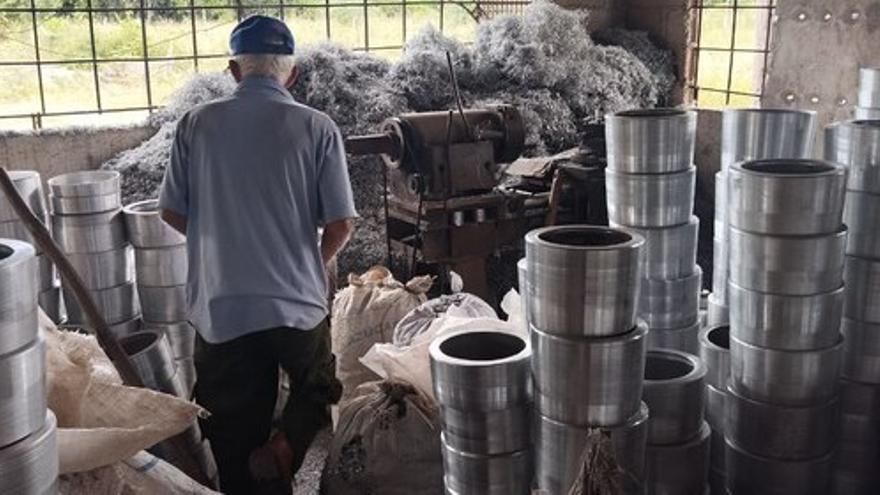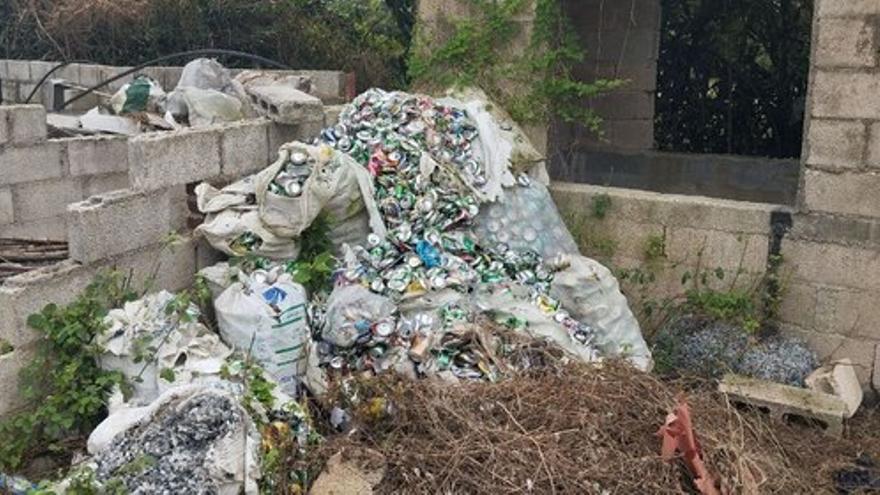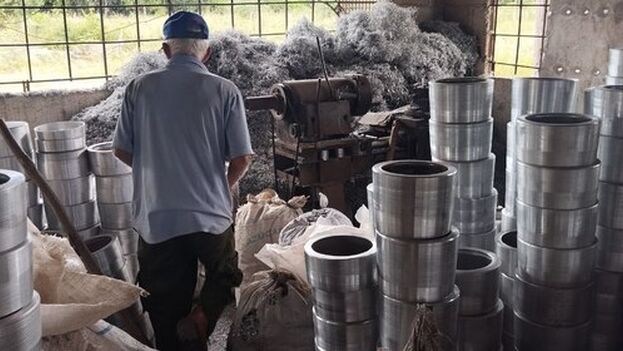
14ymedio, Miguel García, Holguín, 7 January 2023 — Search, collect and crush. Ramón’s day, at age 57, contains those three actions. He makes his rounds through the city center of Holguín, where cans of soft drinks or beer can be more common in the trash. Then, after several days of accumulating, he sells his loot to an intermediary who will take it to a workshop where it is turned into slotted spoons, frying pans, pots and buckets.
“It’s been more than three years since the Raw Materials Recovery Company here had almost no money to pay the collectors, so now I only sell to private companies,” Ramón tells 14ymedio. “Many people have left this job because they earn less and less, and it depends on many things, so everything is very insecure.”
Ramón needs a lot of tourists to arrive in Holguín because they empty thousands of cans a week, and he can “fish” them out from the city’s broken garbage containers. “Now fewer foreigners come, and the soft drinks that are sold almost all come in small bottles, which is not what I pick up. My thing is aluminum.”

Born in 1968, the same year of the Revolutionary Offensive that erased the private sector in Cuba with a stroke of a pen, this holguinero once dreamed of being an engineer, but a traffic accident caused him a head injury that left him with the inability to remember numbers, concentrate and even find his way home in the busy streets of the city.
“I made a living with whatever appeared, but since 2014 I have been doing this,” he explains. Although the Raw Materials Recovery Company has existed since 1961 on the Island, for decades its operation was nourished by the waste collected by the Committees for the Defense of the Revolution and the State centers in their days of voluntary work, or with the by-products of the State industry.
After the opening to tourism during the crisis of the 90s, not only did travelers arrive but also their waste. Canned beer was no longer a novelty to be sold in hotels, shops and cafes. National soft drinks were no longer distributed in the traditional glass bottles but in the lightest and easiest to handle aluminum containers. It was at that moment that the “can crushers” emerged everywhere.
“I made my neighbors crazy,” acknowledges Luisa, another 81-year-old from Holguin, who was one of the first in the city to take up collecting raw materials on her own. “I would come home with a sack or two and spend the whole afternoon crushing cans, I didn’t let any can get away,” she says. Now she has left the business “because it got very bad.”
For the collectors of 30 years ago, the problems were different. “We didn’t have a license; we had to hide every time a policeman passed by, and people treated us badly because they thought we were all crazy,” Luisa recalls. “Now you can ask for a permit and sell the cans legally in one of the State raw material houses, but there’s hardly any business.”
By 2013 the country already had more than 5,700 people who were registere


